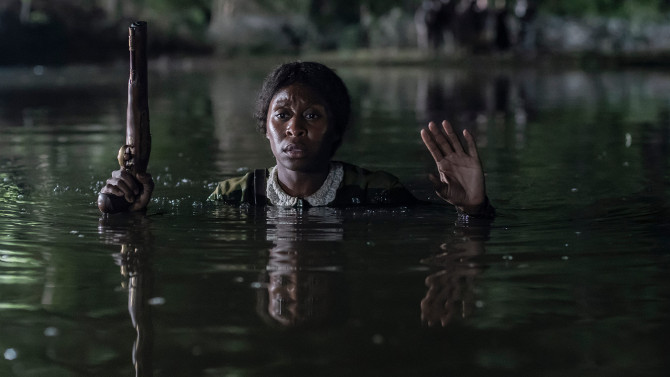
Nordic Track
Now three movies in, there is no doubt that Robert Eggers is one of the more creative minds working in the film industry today. With The Northman (2022), the co-writer (along with Sjón), director, and producer brings forward his most accessible piece yet... but that doesn’t mean that this is not as creative, intricate, challenging, or authentic as his The VVitch and The Lighthouse. This time taking a deep dive into Norse history and mythology, it might surprise some that the main source they worked from was the story of Amleth... a tale which appears in the “Gesta Danorum” (History of the Danes) – as it is also the main inspiration for William Shakespeare’s Hamlet (it is easier to spot the similarities once you are aware of the connection).
-
First Names Only, Please
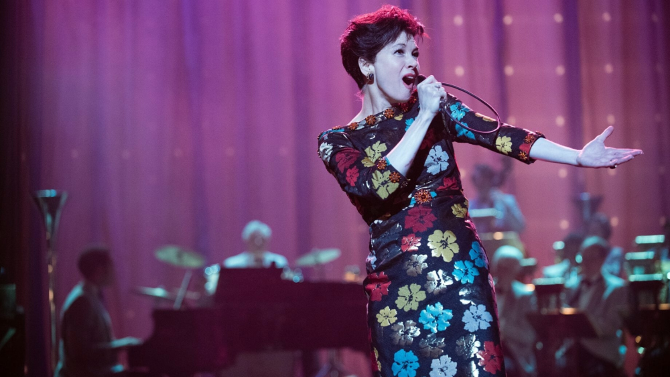 JudyHarrietJanuary 31, 2020
JudyHarrietJanuary 31, 2020The Academy Award season is creeping upon us again. . . and as I am running out of time, I’ve decided to combine and condense two reviews that feature stellar Lead Actress performances of 2019 (that also happen to be about real women), Rupert Goold’s Judy and Kasi Lemmons’ Harriet. Judy tells the tragic story of Judy Garland, flashing back and forth between the way she was mistreated during the filming of The Wizard of Oz, and how that, along with poor life choices, brings her to a point where she is forced to take an extended stay in London in 1968 (away from her children – who she dearly loves) in order to earn enough money to be able to purchase a home (so that she might win custody against her ex-husband).
-
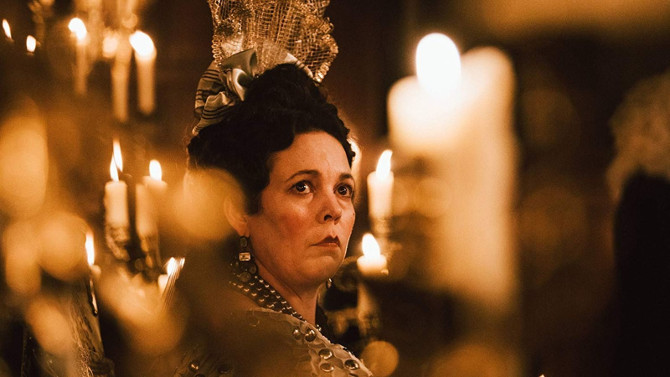
Queen’s Reich
The FavouriteFebruary 12, 2019An out-there European director, Yorgos Lanthimos has made waves with controversial pictures like Dogtooth, The Lobster, and The Killing of a Sacred Deer – intriguing, confounding, frustrating, and mesmerizing audiences worldwide. Now, he has made his first foray into a more mainstream style of film making with the 2018 period piece The Favourite (the first picture he and longtime co-scribe Efthymis Filippou did not write – in this case, an excellent story by Deborah Davis and Tony McNamara) – though, one thing is for sure, you cannot take the eccentric out of the Greek filmmaker. Nominated for ten Academy Awards (including Best Picture, Best Achievement in Directing, and a slew of others), the first thing immediately noticeable is the feature’s striking visual style. Intricately measured and visually opulent (most of it is shot in Hatfield House, Hertfordshire, England), it is often symmetrically framed, a very formal seriousness to the playful story. Like the structured beauty of a perfectly danced waltz, everything is in its place, the camera moving with its characters always in their position, Lanthimos often utilizing a quick 180 degree pan pirouette to provide the viewer with a quick shot of the opposing perspective. Speed is also tinkered with, slow motion and a quicker frame rate adding to the film’s mesmerizing quality. Also worth noting, every once in a while there is a fascinating use of a sort of fish-eye lens-style shot – providing a distorted, arced look to this lavish, gilded world. Hand in hand with this is the exquisite cinematography, director of photography Robbie Ryan shooting almost the whole picture with available natural light (the sun, candles, fireplaces and torches providing an eerie, romantic, and realistic vibe, adding to Lanthimos’ trance-inducing visual style).
-
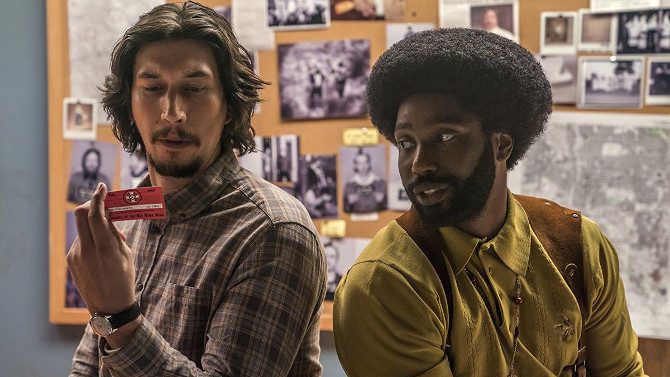
Klandestine
BlacKkKlansmanFebruary 5, 2019It is hard to fathom that Spike Lee is now forty years into his film making career – and it has taken exactly that long for one of his motion pictures to earn a nomination for an Oscar for Best Picture, or Best Director for that matter (though he has been given an Honorary Award from the Academy). His first nomination came for his ‘Brooklyn cultural clash of love and hate’ screenplay for 1989's Do the Right Thing, and it is no surprise that 2018's BlacKkKlansman (which has earned six noms, including three for Lee – Picture, Director and Adapted Screenplay) holds a similar microscopic lens to the tensions smoldering just below the surface in the United States. At times excessive and over the top in its style, it is no surprise when you look at the time frame that the screenplay covers. Set in the early 1970s, it is a time of black and white thinking, radical movements such as the Black Panthers, the Ku Klux Klan, and even the police taking sides. . . the grey milieu forced to either side as cultures clash, as anger simmers to a boil, as times they are a changing.
-

I Have a Dream
Green BookJanuary 27, 2019There is something special while watching an excellent drama and realizing, perhaps before, or maybe only after the credits role, that a director known almost exclusively for comedy has deftly made the genre switch. Think Jerry Zucker (from Airplane! and writing/producing The Naked Gun franchise to Ghost), Jay Roach (the Austin Powers and Meet the Parents franchises to Trumbo), or Adam McKay (Anchorman and Talladega Nights: The Ballad of Ricky Bobby to The Big Short and this year’s Vice). . . and the newest member to enter this club: Peter Farrelly – making the jump from Dumb and Dumber and There’s Something About Mary to 2018's Academy Award Best Picture nominee, Green Book. A tale near and dear to its writer, Nick Vallelonga (it is also co-written by Brian Hayes Currie and Peter Farrelly), Nick is the son of the film’s main character, Tony ‘Lip’ Vallelonga (Viggo Mortensen). Set in the early 1960s, Tony is an Italian American New Yorker, working as a ‘public relations’ expert for The Copacabana (i.e. a rough and tumble bouncer) – a pudgy bull-shitter who acts first and asks questions later.
-
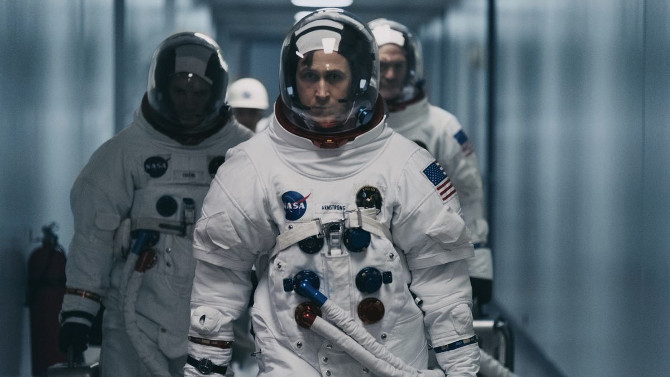
Reach For the Moon
First ManOctober 14, 2018Could First Man finally be the film that brings Ryan Gosling that elusive Oscar? With two nods (for La La Land and Half Nelson), and countless other memorable roles that could have earned him more chances (think Lars and the Real Girl, Blue Valentine, Drive, and The Ides of March), Gosling has re-teamed, in short order I might add, with his La La Land writer/director, Damien Chazelle, for another perfect vehicle (one might call it a rocket) to showcase his acting chops – a fascinating Neil Armstrong biopic. Chazelle’s first directorial effort not to revolve around music (also, the screenplay does not come from him, rather Josh Singer), instead, he shoots for the moon. Gosling plays Armstrong, a man who has his own personal troubles. Married to Janet (Claire Foy), they have two children. . . one of which has cancer.
-
Star Pick with Scott Wilson
 Battleship: Russian StyleBattleship PotemkinJuly 24, 2018
Battleship: Russian StyleBattleship PotemkinJuly 24, 2018A while back, I sat down with the great Scott Wilson. Perhaps known more recently as Hershel on The Walking Dead, he has been busy carving out an interesting career over the past five plus decades. Starting off with roles in two classics, In the Heat of the Night and In Cold Blood, since, he has graced the silver screen in films such as 1974's The Great Gatsby, The Ninth Configuration, Johnny Handsome, Young Guns II, The Exorcist III, Dead Man Walking, Shiloh (and its two sequels), G.I. Jane, Pearl Harbor, The Last Samurai, The Host, and a small but integral turn in this past year’s Hostiles, while recently, he has appeared on television series including CSI: Crime Scene Investigation, Bosch, and The OA. . . this much shortened filmography gives you a small idea of the impact he has made in the industry.

